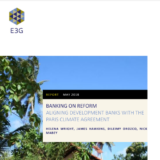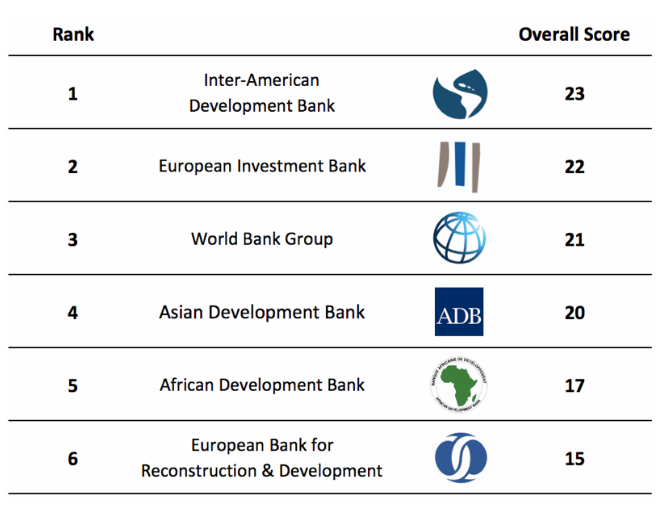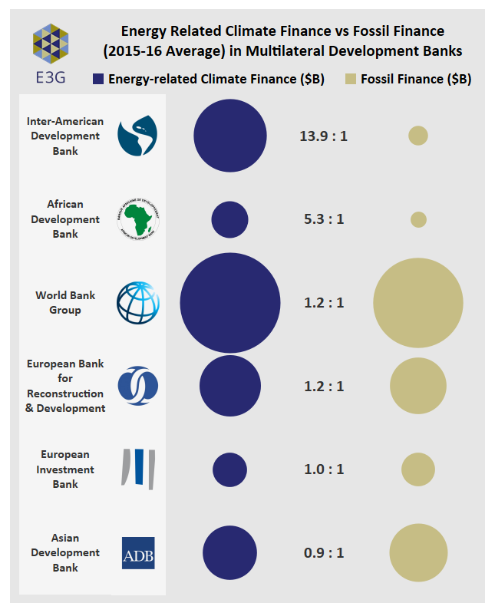Today, at the UNFCCC meetings, E3G launched a new report assessing the progress of development banks in aligning with the Paris climate goals. The report shows that, while some multilateral development banks are making good progress, none are aligned with the Paris agreement and many still have far to go.
Ranking development banks on alignment with the Paris climate goals:
“We have seen progress with announcements in recent months, but there is still a long way to go”, said Dr. Helena Wright, Senior Policy Advisor at E3G and lead author of the report. “Development banks must act in the public interest and catalyse the global shift to net zero emissions. The analysis shows the banks are already funding several innovative projects to scale up climate investment – but the group of development banks must all move faster and further to help avoid the worst impacts of climate change.”
Among the 16 factors considered, the scores on energy finance are particularly diverse. For each bank the report investigates the ratio between energy- related climate finance to developing countries and fossil finance (the green to
brown ratio). On this ratio, only two banks are aligned with the Paris climate goals and none are transformational. According to the MDB’s own estimates, they committed more than $27 billion in climate finance in 2016. But the report finds that most of them spend almost as much on fossil fuels as they do on energy-related climate projects.
Figure 1: Ratio of Energy-related Climate Finance to Fossil Finance Directed to Developing Countries (2015-16 Average), from High to Low
Source: E3G analysis of OECD-DAC climate finance data 1 and fossil finance data from Oil Change International 2 . Ratio covers investment in developing countries only. IFC only includes data for 2015
Development banks are also providing technical assistance to countries in implementing their Paris goals. However, since existing commitments under the Paris Agreement are not sufficient to limit global temperature rise to 2°C, technical support on long-term net zero emission planning is needed.
“Development Banks are ultimately funded by citizens and so must act in the public interest. This analysis shows that all banks could do a better job in helping countries address climate change. Europe can lead the way by ensuring upcoming reviews of the energy strategies of the two European development banks fully align with the Paris Agreement.” added Nick Mabey, CEO of E3G. “These institutions must now seek to go further than the World Bank in ending upstream oil and gas finance,” Dr Wright added.





